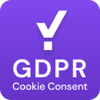Innovative Yet Pragmatic Use Cases Beyond Compliance to Deliver Value at Scale
Discover how our data governance solutions offer innovative yet practical approaches to drive significant value across various aspects of your data management strategy. Our use cases highlight how we address complex challenges and deliver practical solutions that enhance data governance and utilization.
Data Sovereignty Compliance
Managing data on Cloud
Ensure that your cloud-based data operations comply with global data sovereignty and jurisdictional requirements. Our solutions help you:
Navigate Complex Regulations
Understand and adhere to data sovereignty laws across different regions.
Implement Geo-Restrictions
Control where your data is stored and accessed to meet jurisdictional requirements.
Automate Compliance Processes
Use automated tools to ensure ongoing compliance and audit readiness.
Ensure Data Privacy
Protect sensitive data in accordance with local and international privacy laws.
Active Metadata Management
Driving Data Discovery and Analytics on Modern Data Platforms
Enhance your data discovery and analytics capabilities through advanced metadata management
Dynamic Metadata Capture
Continuously capture and update metadata for improved data visibility.
Contextual Data Understanding
Gain deeper insights into data context and relationships to support effective analytics.
Enhanced data Discovery
Utilize metadata to streamline data search and retrieval.
Automated Metadata Enrichment
Leverage AI to automatically enhance metadata for richer data profiles.
GDPR, CCPA and Other Regulatory Standards
Complying with Data Collection, Storage, Processing, and Deletion
Achieve compliance with key regulatory standards to safeguard data privacy
Data Collection and storage
Implement practices to ensure lawful data collection and secure storage.
Data Processing
Comply with regulations regarding data processing activities.
Data Deletion
Follow legal requirements for data retention and deletion.
Regular Audits
Conduct periodic audits to ensure ongoing compliance with GDPR, CCPA, and other standards.
DCAM & CDMD Standards
Aligned Data Governance Operating Model
Adopt industry-leading data governance frameworks to optimize your data management practices:
DCAM
(Data Management Capability Assessment Model) Align with best practices for data management capabilities.
<span data-metadata=""><span data-buffer="">CDMC
(Cloud Data Management Capabilities) Ensure effective cloud data management and governance.
Model Alignment
Integrate these standards into your data governance operating model for comprehensive oversight.
Data Sharing Agreements, Contracts & SLAs
Facilitating Seamless Data Movement Across Boundaries
Streamline data sharing and movement with robust agreements and contracts
Data Sharing Agreements
Establish clear agreements for data sharing across different entities.
Data Contracts
Define terms and conditions for data use and protection.
Service Level Agreements (SLAs)
Set and monitor performance expectations for data-related services.
Integrate Data Risk Management Practices
With a Broader Enterprise Risk Management Framework
Embed data risk management within your enterprise risk management strategy:
Comprehensive Risk Assessment
Evaluate data-related risks as part of your broader risk management framework.
Mitigation Strategies
Develop and implement strategies to address identified data risks.
Continuous Monitoring
Monitor data risks and update strategies as needed.
Govern Unstructured Data
Automating Privacy and Security Management
Manage unstructured data with automated solutions to ensure privacy and security
Automated Privacy Controls
Implement automated privacy management for unstructured data.
Security Measures
Apply consistent security practices to protect unstructured data.
Compliance Tracking
Monitor compliance with privacy and security requirements.
Adaptation of Data Mesh
Decentralizing Data Ownership and Improving Access
Transform data management with a data mesh approach:
Decentralized Ownership
Distribute data ownership across different teams or departments.
Enhanced Access
Improve data accessibility and collaboration within the organization.
Scalable Solutions
Implement scalable data mesh practices to support organizational growth.
Master Data Governance Framework
Regular Reviews and Updates
Maintain an effective master data strategy through continuous improvement:
Framework Updates
Regularly review and update the Master Data Governance Framework.
Strategy Evaluation
Assess and refine your master data strategy to align with business goals.
Governance Practices
Implement best practices for ongoing governance of master data.
Data-Driven Culture
Formulated Enterprise Data Policies and Standards
Foster a data-driven culture within your organization:
Enterprise Data Policies
Develop and enforce policies that promote data-driven decision-making.
Standards & Guidelines
Establish standards and guidelines to support data literacy and usage.
Cultural Transformation
Encourage a culture that values data and leverages it for strategic advantage.
Data Value Realization Framework
Identifying, Measuring, and Maximizing Data Value
Unlock the full potential of your data assets with a structured approach:
Value Identification
Identify opportunities to derive value from data assets.
Measurement Metrics
Measure the impact and value of data initiatives.
Maximization Strategies
Implement strategies to maximize the value derived from data.
Effective Change Management
Leveraging ADKAR for Governance
Manage change effectively within your data governance initiatives:
ADKAR Model
Utilize the ADKAR framework (Awareness, Desire, Knowledge, Ability, Reinforcement) to guide change management efforts.
People-Centric Approach
Focus on the human side of change to ensure successful adoption and implementation.
Continuous Improvement
Adapt and refine change management practices as needed.
AI Governance Frameworks
Addressing Data Bias, Privacy, Security and Ethical Considerations
Implement robust AI governance practices to ensure responsible AI use:
Clear Policies
Develop clear policies to govern AI projects and data use.
Roles and Responsibilities
Define roles and responsibilities for AI governance.
Ethical Considerations
Address data bias, privacy, and security issues in AI initiatives.
Data Quality Framework
Role-Based Access Control and Domain Separation
Ensure high data quality through effective access and domain management:
Domain Separation
Separate business domain groups to manage data quality and access effectively.
Roles-Based Access Control
Implement access controls based on user roles and responsibilities.
Quality Metrics
Monitor and enforce data quality standards across domains.
Ready to Transform Your Data Management practices?
Transform your data management practices with our expert services. Contact us today to learn how we can help you achieve excellence in data governance, quality, and observability.

Ravi B. Sutar
A hands-on practitioner and evangelist with over 20 years of experience in Data Governance, Data Management, and Data Quality.

Malcolm
A thought leader, author, and speaker with 25+ years of experience in data governance and management across various industries.

Raghu Yanamala
A hands-on practitioner and evangelist with over 6 years of experience in Data Governance, Integrations, and Data Management.






